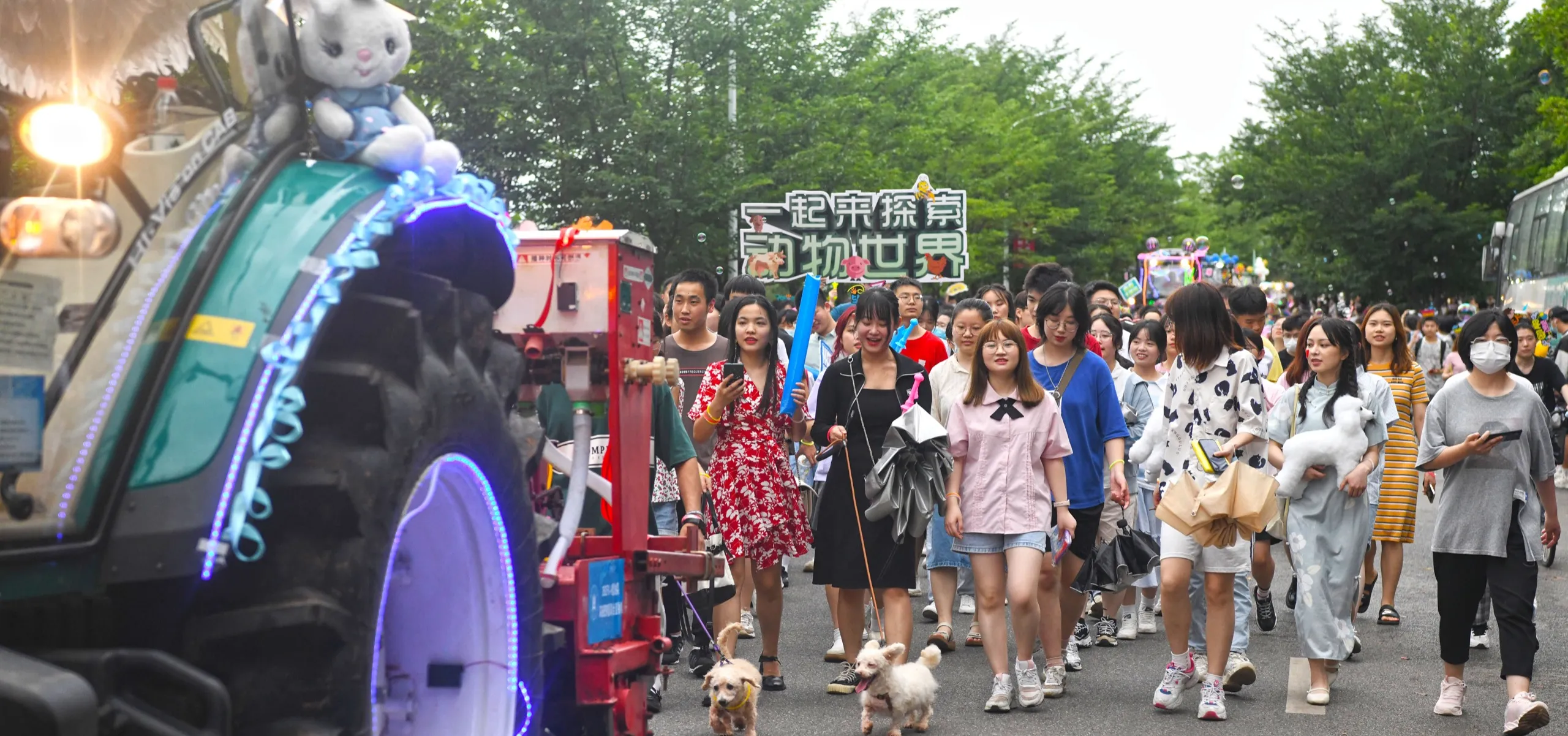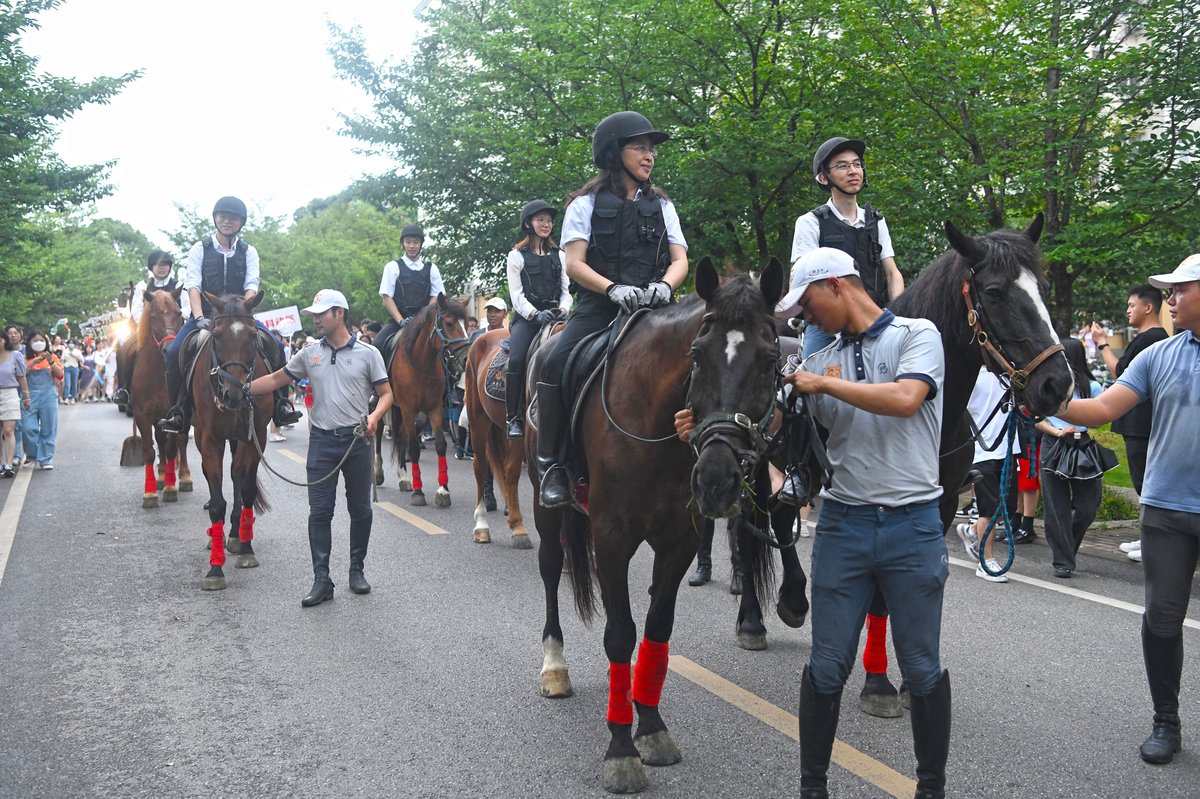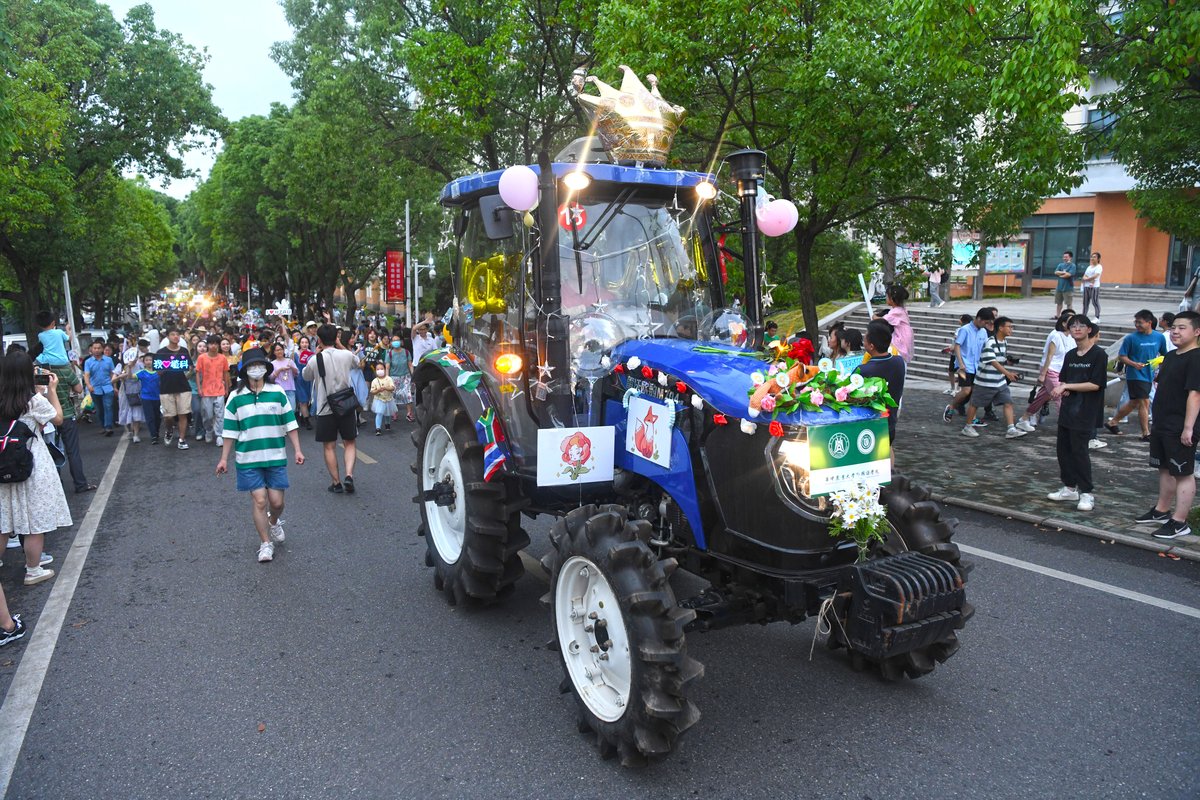From traditional “capping ceremonies” to driving tractors across campus, here are some graduation ceremonies students are unlikely to forget
This year‘s university convocation season, which started in early June and will last until the end of the month, will mark a new beginning not only for the graduates but for China as a whole: According to the Ministry of Education, the graduating class of 2022 is China’s biggest ever, with nearly 10.8 million students getting their diplomas from universities and colleges across the country. It is also the first class in which students born in the new millennium, or “post-00s (零零后),” predominate.
This giant class of students will also be graduating into China’s toughest job markets in recent years, with many sectors downsizing due to Covid-19, and added competition from many Class of 2021 students still job-hunting a year after their own graduations. There are also students still unable to attend their graduations, or campuses unable to host them on a large scale, due to lingering pandemic restrictions. Nevertheless, convocation is typically time for students, teachers, and families to let loose and celebrate their achievements, and a few universities have used out-of-the-box thinking to make these ceremonies creative and truly memorable for all involved:
Traditional robes and capping
Ever since 1994, when China’s State Council issued a set of guidelines standardizing academic dress across the country, the Western-style combination of robe, sash, mortarboard cap, and tassel have been de rigeur at Chinese university and high school graduation ceremonies. In recent years, though, as consumers have started embracing homegrown cultural symbols, several universities have attempted to inject traditional culture elements into their graduation fashions.
This year, Jiangsu Normal University went viral for going the extra mile: not only dressing students and faculty in hanfu and hats traditionally worn by Confucian scholars, but making them march into the auditorium to the sound of flat drums, zithers, and bronze bells, and seating them at low tables and mats. The principal and other officiants appeared to read their speeches from sets of bamboo slips, and rather than having their tassel turned, students went on stage to be “capped” with a scholarly hat a la the traditional coming-of-age ceremony known as 冠礼 (guānlǐ, “rite of the cap”) among males in the Han dynasty (206 BCE – 220 CE). They also bowed three times each—to honor their parents, their teachers, and the school.
Agricultural ceremony
Each convocation season, Huazhong Agriculture University in Wuhan (colloquially known as “Huanong”) holds a parade of new graduates and teachers across campus. This year, according to news reports, the students made 10 floats using tractors, harvesters, and other “high-tech” farming vehicles, including a self-driving tractor. Not to be outdone, some of the veterinary students rode on horseback and marched with dogs. A China Youth Daily editorial spoke positively about the event, noting that it’s still relatively rare for a Chinese school to host “creative” graduation activities, as “from elementary school to university, ‘studying in bitter hardship’ had always been considered as students’ highest aspiration, and ’fun’ was an obstacle to learning.” The editorial called Huanong’s parade a good example of a ceremony that can encourage students to express their creativity and bring enjoyment to learning.
Concert convocation
Qingdao University has gone viral every year since 2019 (minus 2020, when the ceremony was cancelled due to the pandemic) for hosting commencement ceremonies that sound more like stadium concerts—with students serenading their classmates with hit songs, and wowing netizens all over the country with their talent as well as stage presence. This year, students chosen from various disciplines burst into classics like “So Many People in This World (《这世界那么多人》)” by Karen Mok, “Orange Jasmine (《七里香》)” by Jay Chou, “Boundless Oceans, Vast Skies (《海阔天空》)” by Beyond, and six other songs. Netizens applauded the ceremony for being student-centered, allowing even graduates from non-musical majors to shine.
Virtual ceremonies
Since 2020, Covid-19 has led to the cancellation and downsizing of many graduation ceremonies worldwide. To accommodate students unable to return to campus for the ceremony this year, around a dozen students at Shanghai Lida University recreated a 1-to-1 replica of their campus in the game Minecraft. Absentee graduates can tour the virtual campus, get virtual graduation caps and gowns, watch exhibitions of their classmates’ graduation projects, and even sit in on a virtual convocation. The simulation reportedly took the students half a month to make, and follows the lead of similar projects like University of California, Berkeley’s virtual ceremony in Minecraft in 2020.
For a simpler virtual ceremony, the Henan University School of Computer and Information Engineering livestreamed pictures of 170 students who were unable to attend the ceremony, and made animations of the mortarboard cap being put on their heads and the tassels turning. As Covid-19 has also curtailed many new graduates’ plans to travel for the summer before starting their new jobs, one class at the Guizhou Vocational Technology College of Electronics and Information edited various backdrops into their class picture including the Eiffel Tower, the Huangguoshu Falls in Guizhou, and even outer space.
Graduation for mosquito nets
Alright, so this is a marketing gimmick rather than a real graduation: Xianyu, Alibaba’s secondhand trading platform, hosted a “graduation” ceremony for 1,000 mosquito nets from students around the country, which they dressed up in mortarboards. Convocation season is a peak period for listings on Xianyu, as new graduates start selling off the clothing, books, and other knickknacks they’ve accumulated in their dorms over the years. Mosquito nets were apparently chosen by voting on the platform as the objects that students felt best represented their time in university.














